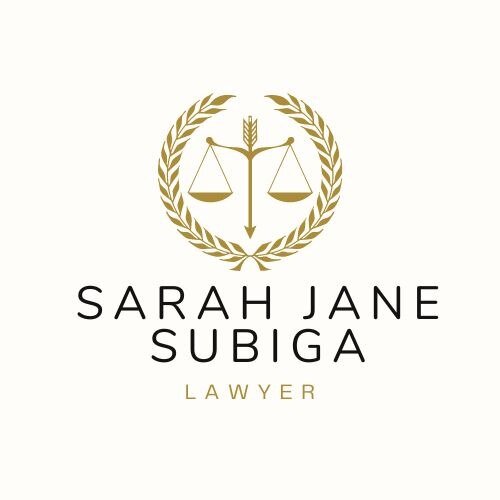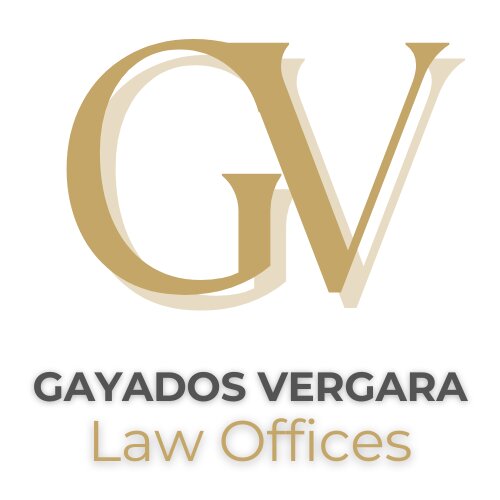Best Sexual Harassment Lawyers in Philippines
Share your needs with us, get contacted by law firms.
Free. Takes 2 min.
Or refine your search by selecting a city:
List of the best lawyers in Philippines

Dagsaan Monterde Castillo Law and Notary Public (DMC LAW)
15 minutes Free ConsultationAbout Sexual Harassment Law in Philippines
Sexual harassment in the Philippines is addressed under the Safe Spaces Act (Republic Act No. 11313), which was enacted in April 2019. This landmark legislation aims to address not only workplace sexual harassment but also harassment in the streets, schools, and online spaces. The law is designed to protect individuals from gender-based sexual harassment that may occur in both private and public sectors. It builds upon previous laws such as the Anti-Sexual Harassment Act of 1995 and expands the scope to cover issues pertinent to today's society.
Why You May Need a Lawyer
If you are a victim of sexual harassment, navigating the legal system can be daunting without professional help. You may require a lawyer in situations such as:
- Filing a complaint with the appropriate authorities or in court.
- Understanding your rights under local and national laws.
- Ensuring that your case is handled in accordance with legal standards.
- Negotiating settlements or resolutions outside of court.
- Facing retaliatory actions by the perpetrator or employer for filing a complaint.
Local Laws Overview
The key aspects of local sexual harassment laws in the Philippines include:
- The Safe Spaces Act encompasses sexual harassment in streets, public spaces, workplaces, and online environments.
- The law mandates schools and workplaces to have internal mechanisms to address and resolve complaints of sexual harassment.
- Employers are required to establish a committee on decorum and investigation to address sexual harassment complaints.
- Strict penalties are imposed for those found guilty, which can range from fines to imprisonment depending on the severity of the act.
Frequently Asked Questions
What constitutes sexual harassment under Philippine law?
Sexual harassment includes unwelcome sexual advances, requests for sexual favors, and other verbal or physical behavior of a sexual nature that affects an individual’s employment, education, or creates a hostile environment.
What actions can I take if I am a victim of sexual harassment in the workplace?
You can report the incident to your workplace's committee on decorum and investigation, file a complaint with the Commission on Human Rights, or pursue legal action in court.
Can I report sexual harassment that occurs online?
Yes, the Safe Spaces Act also covers online sexual harassment, and you can file a complaint with the proper authorities.
How long do I have to file a complaint?
It's advisable to file a complaint as soon as possible to ensure timely action, but specific time frames can vary. Consult a lawyer for precise guidance based on your situation.
What are the protections for witnesses in sexual harassment cases?
Witnesses are generally protected from retaliation and can help provide crucial evidence to support the victim’s claims.
What if my employer retaliates against me for filing a sexual harassment complaint?
Retaliation is illegal, and you can take legal action against any retaliatory practices taken by your employer.
Can men be victims of sexual harassment in the Philippines?
Yes, individuals of any gender can be victims of sexual harassment, and all are protected under the law.
What is the role of the Gender and Development (GAD) officer?
A GAD officer is responsible for addressing gender issues and ensuring that policies on gender equality and sexual harassment are implemented effectively.
Where can I go for additional support as a victim of sexual harassment?
You can seek support from non-governmental organizations, the Commission on Human Rights, or counseling services that specialize in handling sexual harassment cases.
Can I settle a sexual harassment case out of court?
Settling out of court is possible, but it is advisable to have legal representation to ensure that the settlement is fair and legally binding.
Additional Resources
Here are some resources you can consult for more information or assistance:
- The Commission on Human Rights of the Philippines
- The Office of the Ombudsman
- Local NGOs specializing in women's rights and legal assistance
- Legal Aid clinics in law schools offering pro bono services
Next Steps
If you need legal assistance with sexual harassment issues, consider the following steps:
- Gather all evidence related to your case, including correspondence, witness information, and any documentation.
- Contact a lawyer who specializes in labor law or gender-based violence for advice specific to your situation.
- Consider reaching out to organizations or support groups for emotional and psychological support.
- File a formal complaint as soon as possible to ensure that the matter is addressed promptly.
Lawzana helps you find the best lawyers and law firms in Philippines through a curated and pre-screened list of qualified legal professionals. Our platform offers rankings and detailed profiles of attorneys and law firms, allowing you to compare based on practice areas, including Sexual Harassment, experience, and client feedback.
Each profile includes a description of the firm's areas of practice, client reviews, team members and partners, year of establishment, spoken languages, office locations, contact information, social media presence, and any published articles or resources. Most firms on our platform speak English and are experienced in both local and international legal matters.
Get a quote from top-rated law firms in Philippines — quickly, securely, and without unnecessary hassle.
Disclaimer:
The information provided on this page is for general informational purposes only and does not constitute legal advice. While we strive to ensure the accuracy and relevance of the content, legal information may change over time, and interpretations of the law can vary. You should always consult with a qualified legal professional for advice specific to your situation.
We disclaim all liability for actions taken or not taken based on the content of this page. If you believe any information is incorrect or outdated, please contact us, and we will review and update it where appropriate.
Browse sexual harassment law firms by city in Philippines
Refine your search by selecting a city.
















